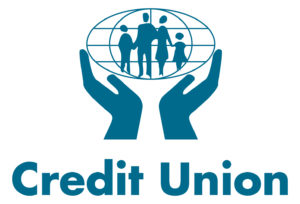Dear Liz: I have five questions. I have enclosed five sheets of paper with each question printed at the top. Please feel free to simply write your advice on each page, and then insert them into the addressed and stamped envelope I have enclosed. This is my attempt to make it easy for you to respond.
Answer: Thank you, but it’s not the lack of paper or a stamp that prevents columnists from replying to private inquiries. Questions of general interest may be answered here, but you’ll need to seek out a financial advisor for personalized advice.
You have many options for finding fiduciary, fee-only advisors. Fee-only advisors accept fees only from clients rather than accepting commissions or other compensation based on products the advisors recommend. Fiduciaries are advisors who promise to put clients’ best interests first. The following organizations can connect you to fee-only advisors who are fiduciaries:
—The National Assn. of Personal Financial Advisors. NAPFA advisors must be certified financial planners (CFPs). Many NAPFA planners charge a percentage of the assets they manage (called an “assets under management” or AUM fee) and have minimum asset requirements, although some charge hourly or retainer fees. A typical fee is around 1% of assets under management.
—XY Planning Network. Advisors must be CFPs and offer the option of flat monthly fees, although they may offer other arrangements including hourly or AUM fees. Monthly fees are typically $100 to $200, with some planners charging an initial fee of $1,000 to $2,000.
—The Garrett Planning Network. Planners must be CFPs or on track to get the designation, or CPAs who have the personal financial specialist (PFS) credential. Hourly fees usually range from $150 to $300.
—Assn. for Financial Counseling and Planning Education. This group offers two credentials for advisors: accredited financial counselor (AFC) and financial fitness coach (FFC). Both focus on helping middle- and lower-income people get a handle on the basics, including budgeting, debt management and retirement planning. Counselors work with clients in financial crisis or who need help with spending plans, eliminating debt, building savings and improving financial stability, said Rebecca Wiggins, the association’s executive director. Coaches focus more on helping clients understand how effective money management can help them achieve life goals, with a focus on changing financial behavior using goal setting, accountability and monitoring, Wiggins says. Many counselors and coaches work for the military, credit unions or other organizations and offer their services free or at reduced cost. Coaches and counselors who have private practices typically charge $100 to $150, but many work on a sliding scale.
 Today’s top story: Latino Credit Unions: Why They Matter, Where to Find One. Also in the news: When an airport lounge day pass is worth the splurge, helping your parents based on need instead of guilt, and why your money advisor should be a Fiduciary.
Today’s top story: Latino Credit Unions: Why They Matter, Where to Find One. Also in the news: When an airport lounge day pass is worth the splurge, helping your parents based on need instead of guilt, and why your money advisor should be a Fiduciary.  Today’s top story: The IRS isn’t having any of these reasons not to pay taxes. Also in the news: What to buy (and skip) in April, how to shop for used clothes – and why you should, and 4 ways to use your health savings accounts to boost your bottom line.
Today’s top story: The IRS isn’t having any of these reasons not to pay taxes. Also in the news: What to buy (and skip) in April, how to shop for used clothes – and why you should, and 4 ways to use your health savings accounts to boost your bottom line.  Today’s top story: Don’t let technology bully you into tipping. Also in the news: 4 things that could make you the target of an audit, how lending a hand by co-signing a loan can backfire, and 7 smart ways to spend a $1,000 tax refund.
Today’s top story: Don’t let technology bully you into tipping. Also in the news: 4 things that could make you the target of an audit, how lending a hand by co-signing a loan can backfire, and 7 smart ways to spend a $1,000 tax refund. Today’s top story: How grads can get another shot at student loan forgiveness. Also in the news: Spring cleaning your credit cards, how to sidestep 3 unethical financial advisor tactics, and how to handle loaning money to your parents.
Today’s top story: How grads can get another shot at student loan forgiveness. Also in the news: Spring cleaning your credit cards, how to sidestep 3 unethical financial advisor tactics, and how to handle loaning money to your parents.